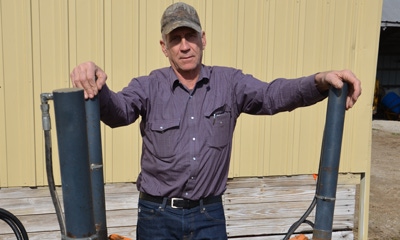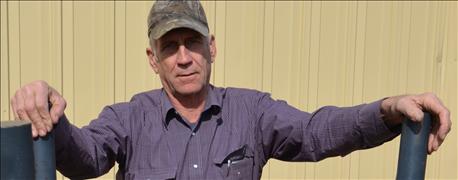
Les Zimmerman is in the latter stages of retiring from the nursery business and transitioning his land from trees to farmland. He still has trees to sell, which are just now becoming mature enough to market. But he isn’t planting new trees. Once trees are dug and sold, he’s returning the land to farmland.
Zimmerman has been in the nursery business for over 30 years. How did he know it was time to change course and plan for the future, including retirement?

TRANSITION PHASE: Les Zimmerman still has trees to sell that are just now becoming marketable size. Once these are sold, the land will be converted back to cropland. It’s part of his transition plan.
“An incident in 2012 started the ball rolling,” he recalls. “It turned out to be the summer of the drought. My father was ill, and we were gone for several weeks to Illinois. It didn’t rain while we were gone. We had a quantity of trees tagged and ready to dig.
“When we returned, all the leaves on those trees were brown. I decided perhaps someone was sending me a message. Maybe it was time to think about transitioning out of the business.”
That didn’t happen overnight. Zimmerman is still in the process, waiting on the last trees to reach marketable size. However, he has already returned land where the last trees were harvested early to farmland.
He chose to phase out of the business. What if you have a farm operation and want to pass it along, but don’t have any children who want to farm? We recently heard about one farmer who is breaking in a college graduate with a farm background, a local person, to help him this year. He is taking the place of the farmer’s partner, who retired after planning his exit for three years.
If things work out and the young worker, now an employee, shows interest, he could possibly be worked into the operation. It would be a way to help the next generation that doesn’t have a farm to go back to after college get started.
Zimmerman is sure of one thing. Making a major transition in your operation or into a different phase of life requires planning. It’s likely not too early to start planning ahead.
About the Author(s)
You May Also Like




